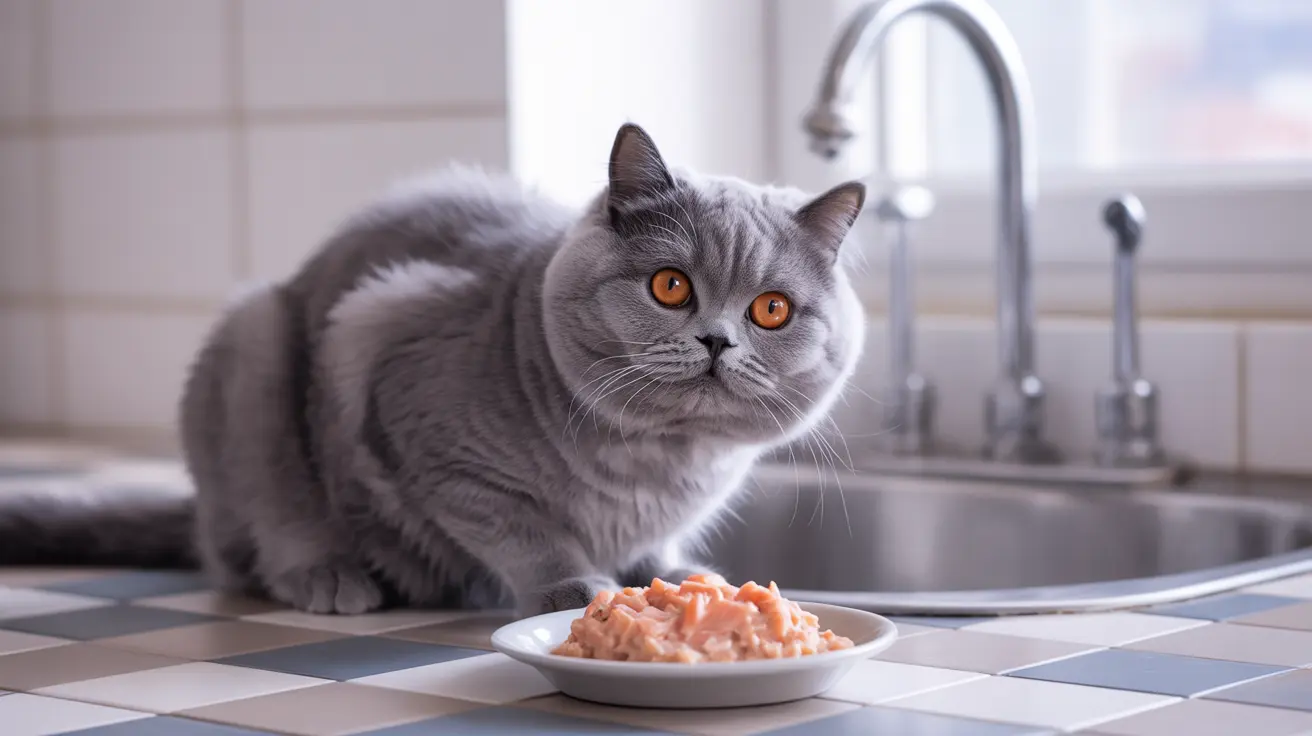When your cat is diagnosed with pancreatitis, proper nutrition becomes crucial for recovery and long-term health management. Understanding what to feed a cat with pancreatitis can make the difference between a smooth recovery and potential complications. This comprehensive guide will help you navigate the complex dietary needs of cats suffering from this serious condition.
Feline pancreatitis requires a different nutritional approach compared to the same condition in dogs. While dogs typically need low-fat diets, cats have unique dietary requirements that focus more on protein content and digestibility.
Understanding Dietary Needs for Cats with Pancreatitis
Cats with pancreatitis need highly digestible foods that don't overtax their compromised digestive system. The focus should be on providing nutrient-dense, easily absorbable meals that support healing while minimizing pancreatic strain.
Protein Requirements
High-quality protein is essential for cats with pancreatitis. Look for foods containing at least 40% of calories from protein sources. Premium animal proteins like chicken, turkey, or fish are typically well-tolerated and provide necessary amino acids for healing.
Fat Content Considerations
Unlike dogs, cats with pancreatitis don't necessarily require strict fat restriction. However, the fat should come from high-quality sources and be easily digestible. Unless your cat is obese, moderate fat content is generally acceptable.
Recommended Food Types and Feeding Strategies
Wet Food Benefits
Canned or wet food is often ideal for cats with pancreatitis because it:
- Provides essential moisture
- Is typically more digestible
- Offers better palatability
- Can be easily warmed to enhance aroma and appeal
Therapeutic Diets
Veterinary-prescribed gastrointestinal diets are specifically formulated for digestive conditions like pancreatitis. These foods offer:
- Optimal nutrient balance
- Enhanced digestibility
- Controlled ingredient quality
- Appropriate protein levels
Feeding Schedule and Portion Control
Small, frequent meals are better than large portions for cats with pancreatitis. This approach helps:
- Reduce pancreatic strain
- Minimize nausea
- Maintain steady nutrient absorption
- Prevent appetite fatigue
Foods to Avoid
Certain foods can worsen pancreatitis symptoms or slow recovery:
- High-carbohydrate foods
- Foods with artificial additives
- Products containing carrageenan
- High-fiber foods
- Table scraps or human food
Recovery and Long-term Management
As your cat recovers, work closely with your veterinarian to adjust the diet accordingly. Some cats may eventually return to their regular food, while others might need to maintain a specialized diet permanently. Monitor your cat's weight, appetite, and symptoms to ensure the dietary plan remains effective.
Frequently Asked Questions
What type of diet is best for a cat diagnosed with pancreatitis?
The best diet for a cat with pancreatitis is highly digestible, protein-rich wet food or veterinary therapeutic diets specifically formulated for gastrointestinal conditions. These should contain quality animal proteins and moderate fat levels.
Should I feed my cat a low-fat diet if they have pancreatitis?
Unlike dogs, cats with pancreatitis don't typically require strict fat restriction unless they're obese. Focus instead on providing high-quality, digestible fat sources in moderate amounts.
How can I encourage my cat with pancreatitis to eat enough during recovery?
Offer small, frequent meals of warm wet food to enhance aroma and appeal. Try different flavors and textures, and consider appetite stimulants if prescribed by your veterinarian. Some cats may need temporary feeding tube support.
Are there special feeding methods or supplements recommended for cats with severe pancreatitis?
Severe cases may require feeding tubes, enzyme supplementation, or probiotics as prescribed by your veterinarian. B12 supplements are often recommended, especially if your cat has developed exocrine pancreatic insufficiency.
What foods or ingredients should I avoid feeding my cat while managing pancreatitis?
Avoid foods high in carbohydrates, artificial additives, carrageenan, and excessive fiber. Stay away from table scraps, human food, and any foods that could trigger inflammation or digestive upset.






